Improving MPPT Performance Using ANN and Jaya Optimization Algorithm in Hybrid Energy Systems with Fuel Cell Integration
Problem Definition
The traditional Maximum Power Point Tracker (MPPT) algorithm used in solar panels faces significant limitations that hinder the maximization of power generation efficiency. One of the major issues is the algorithm's inability to consistently generate power, especially when the solar panel stops working. This results in disruptions in the continuous availability of power, posing a significant challenge for sustainability and reliability. Moreover, the current algorithm lacks adaptability and fails to integrate other energy sources, limiting the overall performance and flexibility of the system. These limitations highlight the urgent need for a more advanced approach to optimize power generation from solar panels, focusing on enhancing performance, ensuring continuous power supply, and enabling the integration of alternative energy sources.
The integration of artificial intelligence and optimization techniques offers a promising solution to address these key limitations and revolutionize the MPPT algorithm for improved sustainability and efficiency in power generation.
Objective
The objective of the project is to enhance the performance of the traditional Maximum Power Point Tracker (MPPT) algorithm used in solar panels by integrating artificial intelligence and optimization techniques. This includes utilizing artificial neural networks (ANN) with the Jaya optimization algorithm to improve weight values for better performance. The project also aims to ensure continuous power supply by incorporating a hybrid energy source, like a fuel cell, that activates when the solar panel is not functioning. Overall, the objective is to overcome the limitations of the current MPPT algorithm, optimize power generation efficiency, integrate alternative energy sources, and guarantee continuous power availability for a more efficient and reliable power generation system.
Proposed Work
The project aims to address the inefficiency in maximizing power generated from solar panels by enhancing the traditional Maximum Power Point Tracker (MPPT) algorithm through the integration of artificial intelligence and optimization techniques. By utilizing artificial neural networks (ANN) in conjunction with the Jaya optimization algorithm, the project plans to improve the weight values of ANN for better performance. This innovative approach aims to ensure continuous power supply by introducing a hybrid energy source, such as a fuel cell, which activates after a set time to provide power even when the solar panel is not functioning. The proposed work focuses on restructuring the MPPT algorithm to achieve high performance, flexibility in integrating alternative energy sources, and continuous power availability.
The objectives of the project include enhancing the performance of the MPPT algorithm for maximum power extraction from solar panels, integrating artificial intelligence and optimization techniques to revolutionize the traditional algorithm, and ensuring continuous power supply through a hybrid energy source.
By combining ANN with the Jaya optimization algorithm, the project seeks to optimize weight values and improve the overall performance of the MPPT algorithm. The inclusion of a fuel cell in the hybrid energy model will guarantee power availability even when the solar panel is not generating power. The project's approach is grounded in the need to overcome the limitations of the existing MPPT algorithm and pave the way for a more efficient, adaptable, and reliable power generation system.
Application Area for Industry
This project's solutions have applicability across various industrial sectors facing challenges related to optimizing power generation from solar panels and integrating alternative energy sources effectively. Industries such as renewable energy, telecommunications, agriculture, and remote monitoring systems can benefit significantly from the proposed enhancements to the MPPT algorithm. The integration of artificial neural networks and the Jaya optimization algorithm not only improves the efficiency of power generation but also ensures continuous power availability by incorporating hybrid energy sources. The utilization of a fuel cell as part of the hybrid model further enhances reliability in scenarios where solar panels might not be functioning optimally. Overall, these solutions address the pressing need for high-performance, adaptable, and reliable power generation systems across different industries.
Application Area for Academics
The proposed project has the potential to enrich academic research, education, and training in the field of renewable energy and optimization techniques. By integrating artificial intelligence and optimization algorithms into the traditional MPPT algorithm, researchers, M.Tech students, and PhD scholars can explore innovative research methods for maximizing power generation from solar panels and integrating alternative energy sources. The use of MATLAB software, coupled with algorithms such as Artificial Neural Networks and Jaya Optimization, offers a compelling platform for conducting simulations and data analysis in educational settings.
This project's relevance lies in its ability to address the inefficiencies of traditional MPPT algorithms and revolutionize power optimization from solar panels.
The inclusion of artificial intelligence and optimization techniques opens up new avenues for enhancing the performance of renewable energy systems and ensuring continuous power supply. Researchers can utilize the code and literature from this project to explore advancements in solar panel technology and optimization strategies, thereby contributing towards cutting-edge research in the field.
Furthermore, the project's focus on integrating hybrid energy sources and fuel cells demonstrates its practical applicability in real-world scenarios where solar panels may not be consistently operational. This aspect enhances the project's educational value by providing students with insights into sustainable energy solutions and the importance of adaptability in power generation systems.
Overall, the proposed project offers a promising platform for academic research, education, and training in the domains of renewable energy, artificial intelligence, and optimization techniques.
Researchers and students can leverage the code and insights from this project to explore innovative research methods, simulations, and data analysis for advancing the field of renewable energy technologies.
Future Scope: The future scope of this project includes the potential for scaling up the implementation of artificial intelligence and optimization techniques in renewable energy systems. Further research can explore the integration of advanced algorithms and innovative approaches to enhance power optimization and increase the efficiency of solar panels. Additionally, the application of these techniques in other renewable energy sources can be studied to develop holistic solutions for sustainable power generation. The project lays a solid foundation for future research directions in the field of renewable energy and optimization, offering opportunities for academic exploration and technological advancements.
Algorithms Used
The project used the Artificial Neural Network (ANN) and the Jaya Optimization algorithm. The ANN is responsible for creating datasets to improve the MPPT, while the Jaya Optimization algorithm enhances the performance of ANN by optimizing its weight value. The amalgamation of these two powerful computational tools ensures an improved performance optimization scheme for solar panels. Two noteworthy algorithms incorporated in this project include the ANN and the Jaya Optimization algorithm. The ANN, with its capability to process large data sets, has been utilized to improve the MPPT.
By creating an exclusive dataset for the project, the ANN helps in enhancing the MPPT with its updated weight value. Complementing the ANN is the Jaya Optimization algorithm, which acts as a catalyst in further sprucing up the weight value of the ANN, thereby maximizing the performance optimization of solar panels. The project proposes utilizing artificial neural networks (ANN) to enhance the MPPT algorithm. By creating a specific dataset, the project intends to improve MPPT by using ANN along with the Jaya optimization algorithm. The use of the Jaya algorithm is a novel approach to enhance the weight value of ANN, which updates following training.
Following this, a combination of the solar panel with a hybrid energy source is proposed, guaranteeing power availability. Moreover, the implementation of a fuel cell in the hybrid model ensures continuous power supply after a set time, irrespective of whether the solar panel is functioning or not. The project proposes a radical approach towards restructuring the MPPT algorithm, beginning with the integration of ANN with the existing mechanism. Curating a specific dataset, the MPPT algorithm is improved through ANN, with special reference to the technique's weight value, which is periodically updated after each training process. To augment this further, the Jaya optimization algorithm is introduced to optimize the weight value of ANN, ultimately leading to its improved performance.
Post the optimization, a hybrid energy source is combined with the existing structure to ensure that power availability is not compromised in scenarios where solar panels cease to function. As an enhancement to the hybrid source, a fuel cell that auto-activates after a predetermined time has been incorporated. With consistent power supply from the cell, the need for solar panels to be in perpetual function is eliminated.
Keywords
SEO-optimized keywords: Solar Panel, MPPT Algorithm, Artificial Intelligence, Optimization Algorithm, MATLAB, Artificial Neural Network, Jaya optimization algorithm, Hybrid Energy Source, Fuel Cell, Power Generation, Weight Value Optimization, Continuous Power Supply, Voltage Over Resistance Load, Neural Network Simulation
SEO Tags
solar panel, MPPT algorithm, artificial intelligence, optimization techniques, MATLAB software, artificial neural network, Jaya optimization algorithm, hybrid energy source, fuel cell, power generation, weight value optimization, continuous power supply, voltage over resistance load, neural network simulation, renewable energy optimization, power efficiency improvement, sustainable energy sources, smart grid technology, energy optimization algorithms, research in solar energy, advanced power generation techniques, integrating alternative energy sources, enhancing power output from solar panels, AI-powered MPPT algorithms.
| Shipping Cost |
|
No reviews found!













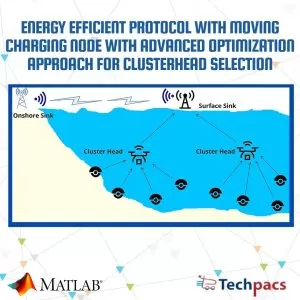
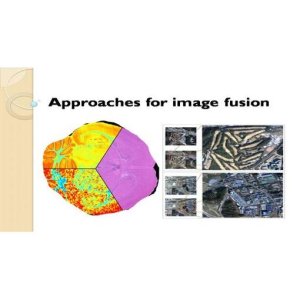
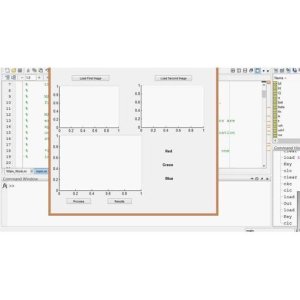

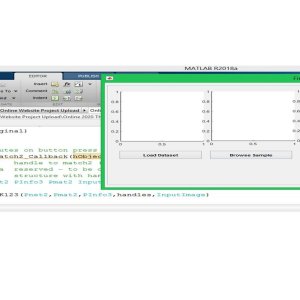
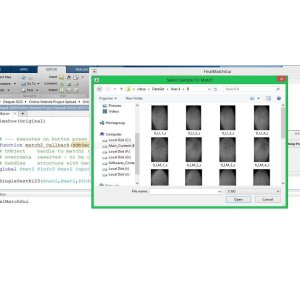
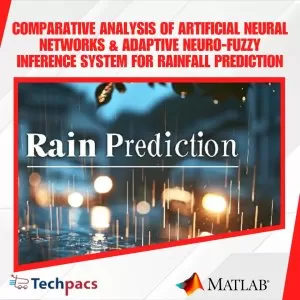































No comments found for this product. Be the first to comment!